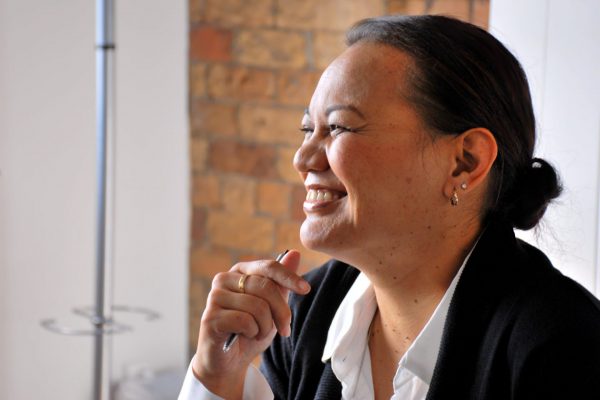Understand me
-
Helping others learn about you
When you help others to learn about you, it can grow your sense of belonging. Participants spoke about how powerful it was to address someone else’s lack of knowledge about them in an up-front way. They shared examples of commenting on or talking about disability, diagnosis, race or religion.
With different people, a way to get it out to everyone - maybe even a speech to class or something. Way more awkward otherwise.
-
With different people, a way to get it out to everyone - maybe even a speech to class or something. Way more awkward otherwise.
-
We’re always not on the same page, but that’s ok. Because we built that relationship up and strengthened it. So that if we say something, and sometimes let’s face it that we need that outlet in which to blow off and call the other person whatever, which is not appropriate in a big setting, with that [ie by doing that] they know and understand what is bugging us and what is upsetting us. And so we are able to help one another.
-
I’m Māori and Irish . I am born and bred Kiwi. My parents work hard, hard workers. We had no electricity and what have you. My parents, they said we gave you a backbone. Going to school and there was Māori, Chinese, Hindus , Pakeha and we all mixed together and there was those ugly issues, and I used to say this to myself yeah, you know, you have got to learn to stand up for yourself, and no matter what you’ve got to learn to get on in the small group.
-
Invite whole team to bat mitzvah, had to sit down and explain to them what it was.
-
I do a lot of presentations, try and tell people and make a point of saying I have Tourette's, it breaks the ice, I don't feel like they are looking at me.
-
-
Asking questions
When others ask open, curious questions about you and your life, it can support your feelings of belonging. Participants spoke about how they felt acknowledged when someone asked about them and their life. They also spoke about how questions opened up space for conversations and new connections with strangers.
I had a similar experience last year, wearing hijab - people being more interested to ask questions.
-
I had a similar experience last year, wearing hijab - people being more interested to ask questions.
-
[On being asked 'where are you from?'] I don’t mind people asking that question. For me, it helps start conversation.
-
Being acknowledged for being different by bringing in different backgrounds, experiences, cultures, etc. - I like to be asked about the differences to show that my perspectives are valid.
-
You say hi and the conversation will last for an hour. My experience in Richmond at a Christmas event, they came to us and ask our details and were eager to know about ourselves and India. It lasted for around 45 minutes ... [these were] total strangers.
-
The parents can ask me. The staff can ask me. That gives me a sense of belonging.
-
I was part of a panel and I gave a Unification [church] view, and someone came up to me and said, I can’t remember, but something like “you're not so weird after all.” I felt good that he felt comfortable to come and say that to me, and then we had a short exchange and it was good.
-
-
Humour
The use of humour to alleviate tension or help with a tricky conversation can help grow your sense of belonging. Participants spoke about how humour can provide a playful way to make a connection with others. They shared how it can help you feel more at ease in a stressful or uncertain situation.
Humour is a great way to feel like you belong. It is a great communal thing.
-
Humour is a great way to feel like you belong. It is a great communal thing.
-
Always been a towns person, fitted more in towns [rather than big city]. Never really did much at school. The more experience I have of life, I’ve fitted more in town community. The more people my humour and character relates to, the more I fit in with them. The people who understand me, I fit in more with them, than the people who don’t understand me. I’m quite a people person.
-
When the people I am with can make a joke, can tease me, or when we can share things.
-
When I was on holiday in France, I decided to stay in the neighbourhood, so that I could practice my French. I had talks with the shopkeeper regularly. I was obviously a foreigner because my French was not good, but the shopkeeper was teasing me in a nice way. For example, I asked for a chicken thigh and the guy asked me if I wanted the “left one or the right one.” I came out of the shop feeling comfortable because it was a shared joke (shared sense of humour).
-
If I get anxious my vocals will come back, so I will make jokes about it. It makes it easier.
-





